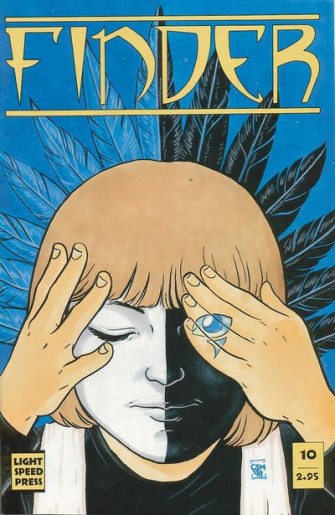
September 14, 2005
 Update: Diamond’s New Order Policies
Update: Diamond’s New Order Policies


There's been a tiny bit of heat on yesterday's wider awakening to new sales standards from comic book industry giant Diamond Comics Distributors, a story I tried to unpack
here. The new material comes mostly from columnists and industry observers like
Heidi MacDonald and
Steven Grant, and on industry message boards like those at
The Engine and
The Comics Journal, even retailers like
Jason Richards and those on the CBIA forum.
There are a few things worth noting about the public discussion thus far.
1. The argument that Diamond should maintain a low participation threshold in order to provide opportunities for slow-developing hits is not a cause and effect argument; it's really risk analysis. Books like
Bone,
Cerebus, and
Love and Rockets were creatures of their respective eras, and 500 in sales means something different then and now. They illustrate the possibility of what can be lost, not the certainty of what will be.
2. In fact, the dearth of more recent examples suggests the DM may now be
unable to create hits like those books, or at least may suck far worse at it now. Ironically, this may serve the case
for Diamond's new policy by mitigating the costs of losing such books. Neglecting the low-end of the direct market creates a reality that leads to dumping it becoming a good idea.
3. Seeing potential benefits or expressing empathy for a business decision in no way means an endorsement of the morality involved.
4. Nor is it a prediction of success. I feel some of my peers are too quick in assuming the benefits of streamlining that will come only via the effective execution of this new policy.
5. It's crucial that we look at these issues in a broad context regarding the shape and scope of the American comic book direct market. It would be very, very comics culture to let loose with the indictments regarding certain low-end suppliers -- "Honestly, you don't deserve to be here" -- and fail to hold Diamond to the same scrutiny.
Here's a question I think comes up if this story continues to develop. Since Diamond is now making distinctions about which publishers and projects are worth allowing access to the market, and since they cite an overall market good as a justification for making this distinction, shouldn't they now act on those standards by dismantling their outdated system of selling marketing information for pay?
Has the direct market failed Finder, Finder failed the direct market, both, or neither?
posted 10:22 am PST |
Permalink
Daily Blog Archives
November 2019
October 2019
September 2019
August 2019
July 2019
Full Archives


